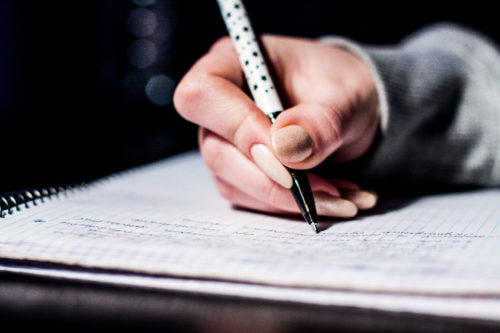The approach of finals week is stressful for high school and college students alike. Notes must be looked over, projects finished, and books read and re-read. Finishing the semester strong can sometimes feel like a daunting task, especially if you’re behind in a class or taking a final in a particularly difficult subject. But no matter where your grade stands right before finals week, there are steps you can take now to make yourself as prepared as possible.
You first need to figure out where you currently stand in the class, as well as what grade you need on the final to get the grade you want. To calculate your grade, use the formula below:
| Final Exam Grade You Will Need = | Grade in Class You Want-Grade A(Weight) X Grade B(Weight) |
| Final Exam Weight |
If you find out you only need a C on the final exam to get an A in the class, you can rest easy knowing that the right amount of preparation can get you there. On the other hand, if you find out you need a high A on the final to make an A for the semester, you will need to devote more time and effort to studying for that final.
Now that you know where your grade stands, you can develop your study plan. Figuring out your study style is an important part of being a student. Once you’ve figured out what works best for you, you’ll find that you can work with larger amounts of information more efficiently.
There is no one ‘right’ way to study. Some students enjoy collaborative study, which includes activities like getting together with people from your classes to go over vocabulary, study guides, or practice questions. Other students discover they study more effectively and concentrate better alone. You also want to be sure to give yourself enough time to process what you’re studying. Studying in short bursts with plenty of breaks can be good for some subjects, but, depending on your schedule, one or two long stretches may serve you better. Remember, all night cram sessions will only make you confused, sleepy, and frantic; it is better instead to pace yourself. Sometimes the best thing to do is put the book down, walk away, then go back to it the next day. Your brain needs time to synthesize what you’re studying: feeding it too much at once will not help.
Finally, remember that your health and well-being will affect your academic success. During periods of intense stress – like finals week – it is even more important than usual to make sure you get enough food, rest, and exercise. You cannot do your best if you’re hungry, sleep deprived, and tense, all of which an effective study strategy will help you avoid.

